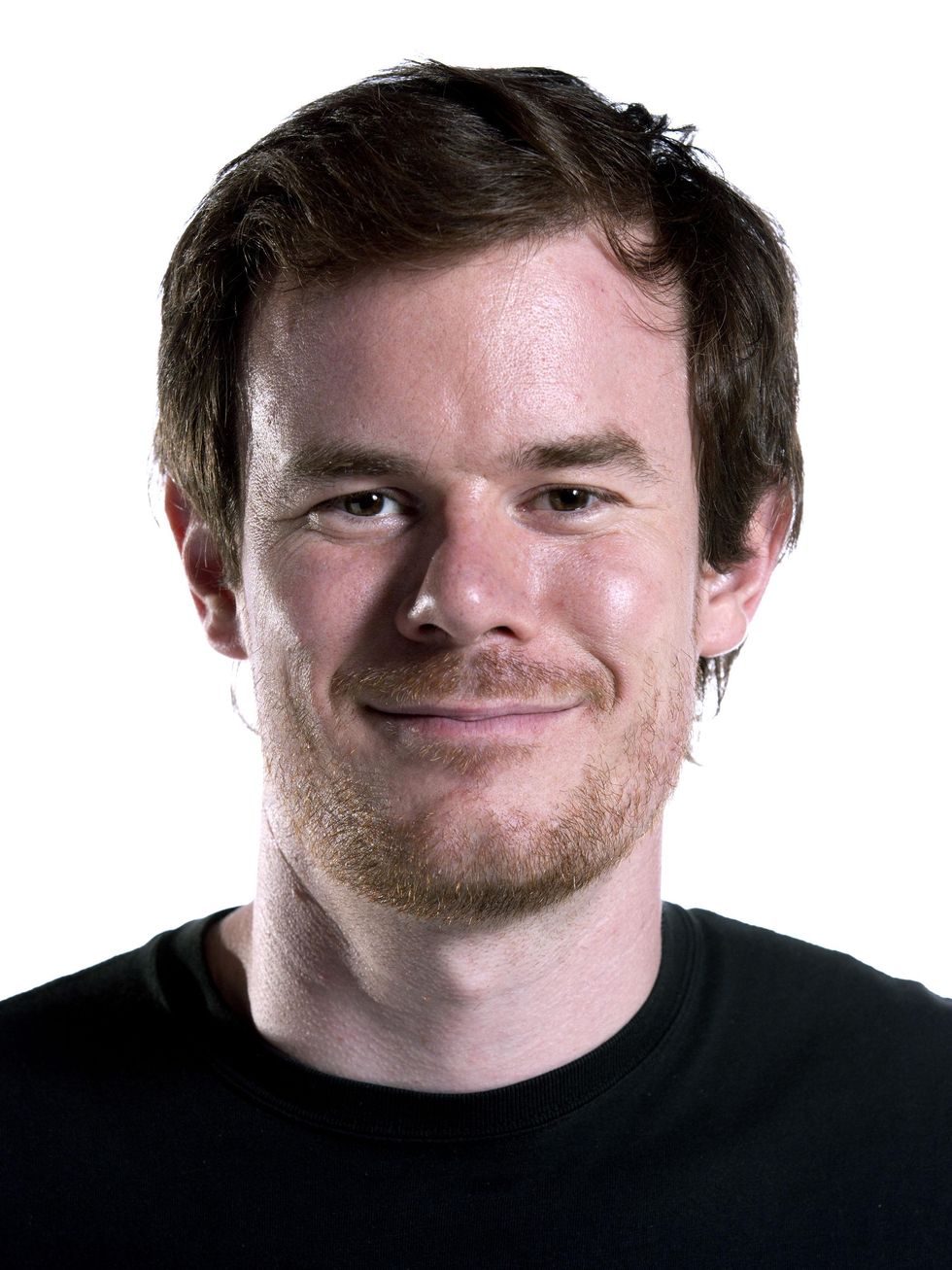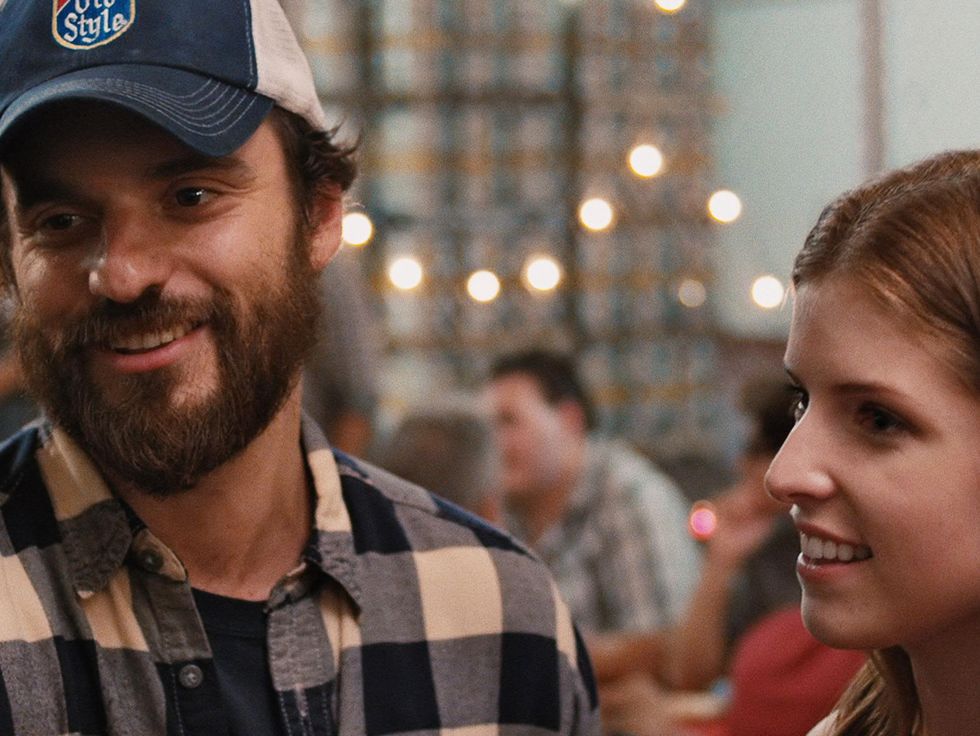The CultureMap Interview
Drinking Buddies director Joe Swanberg talks relationships, artistic accuracy and beer
Joe Swanberg’s Drinking Buddies is an unconventional romantic comedy set in a Chicago brewery that examines the fuzzy world of relationships between the opposite sexes. The film, starring Jake Johnson, Olivia Wilde and Anna Kendrick, features Swanberg’s low-key mumblecore aesthetic and a devotion to realism.
CultureMap spoke with Swanberg about the filmmaking process, how relationships work and, of course, beer.
CultureMap: This is your first out-and-out comedy, and it also features the most well-known cast you have worked with. Were those two things connected when you set out to make Drinking Buddies?
Joe Swanberg: We sort of knew it was going to be bigger simply because I wanted to shoot in the brewery, and other elements made production better. We weren’t sure how much bigger, and as the actors came on board, it organically grew into the production it came to be.
It was a desire from my end that this could reach bigger audience. I’m at the point in my career where I wanted to try that for the first time.
CM: Your work in the mumblecore genre has featured a lot of improv and has a low-key feel. Were there any difficulties in using actors that came from more established avenues like major movies and network sitcoms?
JS: It was interesting to discover that everyone wanted to help maintain that tone. For the actors, that was a big appeal, and my producers were really great making sure that didn’t have to change.
It was exciting to make something bigger and reach more people. Everyone was there because they wanted to still try to make one of my movies. It was the best of both worlds. I got to trust my gut and make exactly what I wanted to make with additional people to help facilitate that.
CM: What was the inspiration for setting the movie in a brewery?
JS: It started about five years ago; I had really gotten into craft beer and local beer and started to realize there was really good beer out there. My wife got me a home brewing kit for my birthday, and I took it up as a hobby.
As with many things, my hobby turned to obsession. Outside of movies and filmmaking, making craft beers and seeking them out is my big passion.
CM: As an indie filmmaker, do you identify with craft brewers?
JS: Yeah, definitely. The people that are in the craft beer world right now are there for the same reasons as indie filmmakers: They’re passionate about what they do. They have the opportunity to be artistic that wouldn’t exist if they were with one major brewery.
We’ve all chosen artistic expression over financial gain. There’s that sort of kinship, because of that trade-off. And there are similar obstacles. They have to fight for distribution and shelf space and getting people to know they exist.
It’s a lot of the same thing with filmmakers — limited screens and showings and that stuff. I see them as sort of sister industries.
CM: Someone who works at a brewery here in Dallas said he was really impressed with how accurately you represented the setting and tone in those scenes. How did you get involved with Revolution [the brewery where the film was shot], and what kind of research or development went into that?
JS: I wanted to get that right. That was really important to feel like we successfully portrayed the job. Rather than focus on the sexy, money shots of brewery stuff, most of the time you see Jake working; he’s scrubbing and cleaning. We wanted to nail the real work aspect.
We worked heavily with Revolution and with Andrew Mason at Three Floyds Brewing, who showed the actors the process. If Jake hadn’t been committed to wanting to do that, it doesn’t work. Same with Olivia. From their end, they had to care as much as I cared and make sure they were doing it right on camera.
CM: Jake Johnson and Olivia Wilde have a strong chemistry on screen. Did that take a lot of work, or was it there from the get-go?
JS: Well, they kind of brought it to the table right away. You always have to work on nuances of relationship, but the chemistry was there. They really understood one another right away. It was a pleasure to watch.
Casting is the most important part for a director, the way that I work. It was really thrilling that they hit it off so well and nailed that almost from the very beginning.
CM: The big conflict in the movie is Jake’s character Luke’s struggle between appreciating what he has with Anna Kendrick’s character Jill and battling the urge to explore the unknown with Olivia’s character Kate. Is that something you drew on from your own past?
JS: Definitely. I would say almost everything I make is derived from something I’ve gone through and my wanting to tell stories we don’t see all the time. It’s a realistic capture of people my age and my generation.
I’ve been married for six years, so it’s something we dealt with a while ago. I wanted to tell a story now as we’re leaving our 20s and entering our 30s, because we have friends having that conversation and thinking about marriage. How do I commit to this person for my life, and is there someone out there that’s a better fit? Generationally it felt like the right time.
CM: Drinking Buddies is kind of a romantic comedy for people who don’t like romantic comedies. Was that a goal?
JS: I mean, definitely, the real goal was to make a movie that was entertaining. There’s a big desire to make something fun and accessible and to see if I could do both things. I’ve made plenty of movies that are accurate to the circumstances that haven’t artistically opened up to the audience.
It’s always about accuracy, and with Drinking Buddies, I’m at a point where I want people to see the work. If I’m going to put so much into it and ask the same of the actors, I wanted that to reach people. It’s my first experiment in to how to maintain accuracy and open things up. It was a dual role.
CM: In the movie there’s the issue of emotional vs. physical infidelity, and how murky the line is between being best friends and something more. Do you think you can be best friends with someone of the opposite sex you’re sexually attracted to without it damaging your relationship with your girlfriend/husband/significant other?
JS: It’s tricky. That’s certainly the big question it’s asking. By the end, the answer is "yes, but it’s complicated." I feel like men and women can certainly be friends, even with a strong sexual attraction. You have to work on it in one form or another, try to make it not the central point of the relationship.
It’s hard when you’re secretive about it, because then you give it power to grow, and it becomes more than it needs to be. I hope by the end of the film, you get the answers to that without wrapping it up in a neat package.
These questions are interesting to me because it’s so different from relationship to relationship. A relationship is an agreement between two people about how you treat one another, essentially. I’m telling one story in Drinking Buddies, but it could go multiple ways, depending on the people.
CM: Lastly, can you name-drop some breweries so we know you’re legit?
JS: If I had access to only five breweries for the rest of my life, they would be Three Floyds, Revolution, Half Acre from Chicago, Great Lakes in Cleveland, and either Firestone Walker or Lagunitas — one of the West Coast ones.
--
Drinking Buddies opens at Magnolia theaters September 6 and is available on iTunes and On Demand now.



